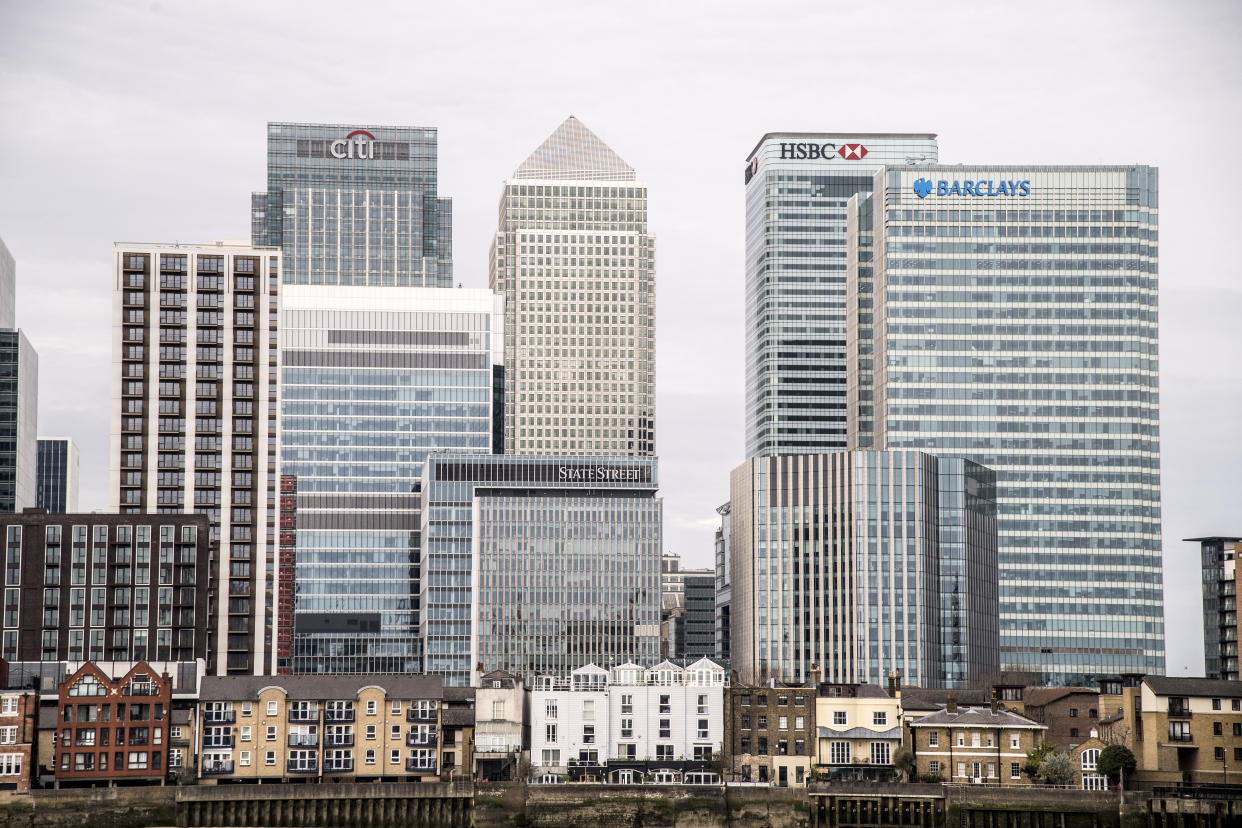Bank of England: UK banks in good shape despite increase in risk taking

The Bank of England has concluded that the UK's financial system is in good shape to weather any potential crisis, even as risk taking and risks multiply.
The central bank published its bi-annual Financial Stability Report on Tuesday, which diagnoses all the risks to the UK's financial system and takes a view on how prepared banks and other financial firms are to deal with them.
Bank of England governor Andrew Bailey said COVID-19 had been "the first big test" of post-financial crisis reforms of banking rules. The Financial Stability Report said the rules had passed with flying colours. Central bankers concluded that UK banks are in good shape despite increased risk taking in global markets, runaway house price growth in the UK, and rising levels of corporate indebtedness.
Read more:FTSE 100 rises as UK's lockdown easing confirmed for 19 July
"The FPC continues to judge that the banking sector remains resilient to outcomes for the economy that are much more severe than the Monetary Policy Committee’s central forecast," the report's authors wrote.
The Bank of England announced it was abandoning so-called 'guardrails' introduced last year limiting bank's dividend payouts and share buybacks, given the resilience of banks' balance sheets.
The move came even as risks appear to proliferate. The Bank's Financial Policy Committee (FPC), which authored the report, said investors were taking racier positions in global markets. Fund managers were taking on more risk and underwriting standards in some sectors, such as leveraged loans, were getting loser. The combination is setting investors up for potentially painful losses or corrections.
"Risky asset prices have continued to increase, and in some markets asset valuations appear elevated relative to historical norms," the report said. "This partly reflects the improved economic outlook, but may also reflect a ‘search for yield’ in a low interest rate environment, and higher risk-taking."
Read more: Everything you need to know about SPACs, the hottest trend in finance
The committee highlighted surging cryptocurrency prices and a boom in high-risk special acquisitions companies — so-called SPACs — as evidence of increased risk taking.
"Rapid appreciation of cryptoasset valuations and recent high levels of price volatility in these instruments could highlight potential pockets of exuberance," the committee wrote.
The BoE said cryptocurrencies were unlikely to pose a financial stability risk at the moment, given they are mainly owned by retail investors. However, rising interest from institutions means that could change in future.
Elsewhere, the report noted that house price growth and housing market activity was also at its highest level in a decade despite the pandemic, a possible sign of market exuberance.
Despite the boom, the committee said households have so far not taken on unsustainable levels of mortgage debt. The Bank said existing measures were already in place to "limit any rapid build-up in aggregate indebtedness and in the share of highly indebted households".
The Financial Policy Committee — which includes governor Andrew Bailey and other senior policymakers — reached a similar conclusion on the issue of corporate indebtedness. Businesses have borrowed £80bn so far through government-backed COVID-19 support schemes. However, the Bank of England said overall corporate debt levels have not increased markedly and repayments remained affordable.
Read more: SoftBank leads investment in UK tech
"The FPC judges that UK corporate debt vulnerabilities have increased modestly," the report said.
The committee said the British people and businesses would continue to need support from banks as the country exits the crisis phase of the COVID-19 pandemic and begins to recover.
"Households and businesses are likely to need continuing support from the financial system as the economy recovers and the Government’s support measures unwind over the coming months," the report said.
"The FPC expects banks to use all elements of their capital buffers as necessary to support the economy through the recovery. It is in banks’ collective interest to continue to support viable, productive businesses, rather than seek to defend capital ratios by cutting lending."


